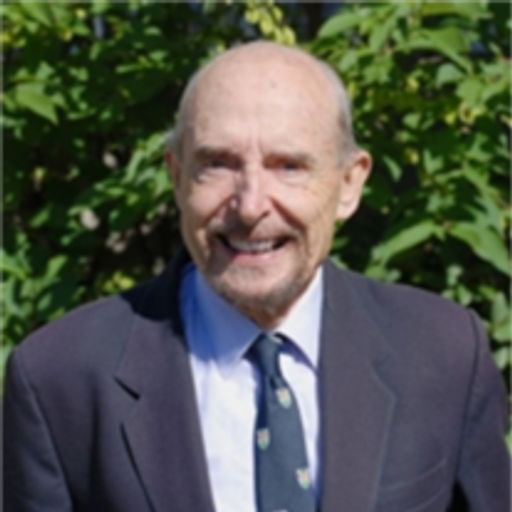

1934
John
2019
John Aitken Mccracken
August 16, 1934 — January 17, 2019
SHREWSBURY - John Aitken McCracken, 84, of Shrewsbury, died peacefully on Thursday, January 17, 2019 at Knollwood Nursing Home, Worcester, MA. John was the youngest son of the late Samuel and Elizabeth Aitken McCracken of Scotland; he was predeceased by his siblings Irene, David and Anna. He will be greatly missed by his nine nieces and nephews and their families, the Aitken cousins in Canada, and his many friends and colleagues.
John McCracken was born in 1934 in Glasgow, Scotland, and grew up in nearby Troon. He enrolled in Veterinary Medicine at Glasgow University and after graduating as Doctor of Veterinary Medicine in 1958 served as house surgeon at the Veterinary Hospital, also in Glasgow. Subsequent to this appointment he was encouraged by Sir William Weipers to redirect his career, which led him to a fellowship at the University of Cambridge, UK, to study measurements of steroid hormones. On returning to Glasgow he completed his Ph.D. in 1963, his dissertation describing his discovery of progesterone in cow’s milk.
For post-doctoral work he joined Professor Ian Bush at the University of Birmingham, UK, in 1963. Dr. Bush specialized in the field of detecting and identifying steroid hormones using chromatographic procedures. In 1964 Professor Bush and a team of thirteen from the Department of Physiology immigrated to the Worcester Foundation for Experimental Biology, Shrewsbury, MA. As a member of the so-called “brain drain” team, it was in Shrewsbury that John pursued his studies on the interrelationships of steroid hormones and prostaglandins. During these years he greatly enjoyed the stimulating atmosphere of the Laurentian Steroid Hormone Conferences in Canada, founded by Dr. Gregory Pincus, developer of the contraceptive pill in Shrewsbury.
In 1998, after 34 years, John retired from the Worcester Foundation as Principal Scientist Emeritus. He then was appointed Professor in Residence in the Department of Animal Science at the University of Connecticut where he and his team identified prostaglandin PGF2 as the long-sought factor regulating the female cycle in most mammals.
Over the years, he collaborated internationally and extensively with scientists in his field of expertise, his work helping to stimulate the research of others. Using John’s research on sheep uterine transplants, Professor Mats Brannstrom of Sweden pursued the ambitious goal of transplanting the human uterus in order to ameliorate certain types of infertility in women. In 2012 Professor Brannstrom successfully transplanted the uterus of a mother to her own daughter. This complicated procedure has now been repeated by a team at Baylor University in Texas, resulting in the birth of healthy babies.
John has endowed the Weipers-McCracken Fellowship in Endocrinology at Glasgow University.
John had many happy recreational pursuits: fishing, skiing, tennis, hiking, bird watching and playing his favorite card game bezique. He treasured his antique MGB sports car and his collection of single-malt whisky. John’s family and friends will miss his humor, jokes, opinions, fun and his extensive knowledge of the history of Scotland and its geology.
Donations in John’s memory may be made either to “Trout Unlimited” at www.tu.org or to Mass Audubon Society at www.massaudubon.org .
John McCracken was born in 1934 in Glasgow, Scotland, and grew up in nearby Troon. He enrolled in Veterinary Medicine at Glasgow University and after graduating as Doctor of Veterinary Medicine in 1958 served as house surgeon at the Veterinary Hospital, also in Glasgow. Subsequent to this appointment he was encouraged by Sir William Weipers to redirect his career, which led him to a fellowship at the University of Cambridge, UK, to study measurements of steroid hormones. On returning to Glasgow he completed his Ph.D. in 1963, his dissertation describing his discovery of progesterone in cow’s milk.
For post-doctoral work he joined Professor Ian Bush at the University of Birmingham, UK, in 1963. Dr. Bush specialized in the field of detecting and identifying steroid hormones using chromatographic procedures. In 1964 Professor Bush and a team of thirteen from the Department of Physiology immigrated to the Worcester Foundation for Experimental Biology, Shrewsbury, MA. As a member of the so-called “brain drain” team, it was in Shrewsbury that John pursued his studies on the interrelationships of steroid hormones and prostaglandins. During these years he greatly enjoyed the stimulating atmosphere of the Laurentian Steroid Hormone Conferences in Canada, founded by Dr. Gregory Pincus, developer of the contraceptive pill in Shrewsbury.
In 1998, after 34 years, John retired from the Worcester Foundation as Principal Scientist Emeritus. He then was appointed Professor in Residence in the Department of Animal Science at the University of Connecticut where he and his team identified prostaglandin PGF2 as the long-sought factor regulating the female cycle in most mammals.
Over the years, he collaborated internationally and extensively with scientists in his field of expertise, his work helping to stimulate the research of others. Using John’s research on sheep uterine transplants, Professor Mats Brannstrom of Sweden pursued the ambitious goal of transplanting the human uterus in order to ameliorate certain types of infertility in women. In 2012 Professor Brannstrom successfully transplanted the uterus of a mother to her own daughter. This complicated procedure has now been repeated by a team at Baylor University in Texas, resulting in the birth of healthy babies.
John has endowed the Weipers-McCracken Fellowship in Endocrinology at Glasgow University.
John had many happy recreational pursuits: fishing, skiing, tennis, hiking, bird watching and playing his favorite card game bezique. He treasured his antique MGB sports car and his collection of single-malt whisky. John’s family and friends will miss his humor, jokes, opinions, fun and his extensive knowledge of the history of Scotland and its geology.
Donations in John’s memory may be made either to “Trout Unlimited” at www.tu.org or to Mass Audubon Society at www.massaudubon.org .
To order memorial trees or send flowers to the family in memory of John Aitken Mccracken, please visit our flower store.
Photo Gallery
Guestbook
Visits: 2
This site is protected by reCAPTCHA and the
Google Privacy Policy and Terms of Service apply.
Service map data © OpenStreetMap contributors



